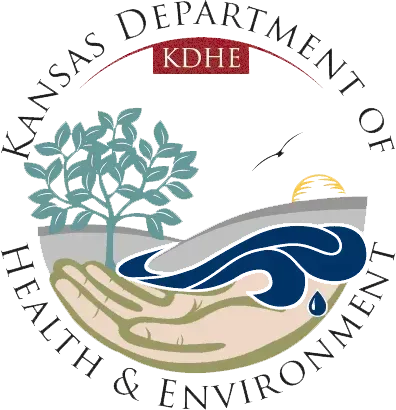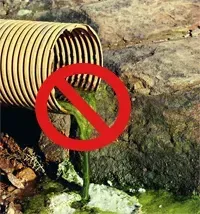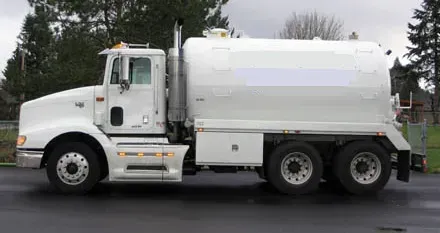
FAQ'S
How is NEKES funded?

Member counties of the NEKES coalition contribute annually, and the fee-based services are paid by property owners who receive those services.
What services does NEKES provide?
NEKES provides evaluations, assessments and permitting of private onsite wastewater management systems and private water wells; soil profile analyses; consultations to developers of sub-division sites; investigation of complaints relating to animal maintenance, solid waste disposal, household hazardous waste disposal, vector control, mold, and housing; enforcement of county sanitation codes, state statutes and regulations and federal laws; public education, inter-agency technical assistance; and environmental clearing-house and referral services.
Is a permit required for construction or repair of private wastewater management systems?
All of the counties served by NEKES require that a private wastewater management system be constructed by a licensed wastewater management system installer. A permit to construct the system must be applied for before the system is installed. A site evaluation and soil profile analysis will be completed by NEKES and the type, size and location of the system will be determined. After the wastewater management system has been installed and BEFORE using the system, NEKES will complete a final inspection and issue a permit to use the system. The requirements for installation and inspection are laid out in the individual counties’ Environmental/Sanitation Code. See the NEKES Fee Schedule for permit costs. Click to see Licensed Wastewater Management System Installers
What is considered a Minor Repair and a Major Repair to a Wastewater System?
Minor repairs include inlet and outlet T's, sewer pipe, risers and replacing a septic tank that is the same size as the old tank. A repair does require the permit process to be completed and a fee is charged. All other repairs are considered an alteration and require a Wastewater Permit Application with a fee.
What are the types of Residential Wastewater Systems that can be installed?
NEKES will determine the type of system recommended after a Soil Profile Analysis is completed. Septic tanks with in-ground absorption systems and wastewater ponds (lagoons) are the most common. However, there are some alternative systems that can be used such as elevated sand mounds, intermittent sand filters, shallow-in-ground and low-pressure pipe systems.
Is an inspection of the wastewater management system required when a property is sold?

The Jackson County, KS Environmental and Sanitation Code requires that when any property connected to or is served by an onsite wastewater system, is offered for or subject to a contract of sale/refinance, NEKES shall evaluate for a fee cost the condition of the system (see section 1-3.19 of the Jackson County, KS Environmental and Sanitation Code). Doniphan County and Nemaha County Environmental and Sanitation Codes require evaluations for properties with onsite wastewater systems that are being sold, leased, rented or used after their codes went into effect (see section 2-4.1 of those county codes for more information). Lending agencies and home buyers may also ask NEKES to complete private onsite wastewater system evaluations.
How can an application for a permit to construct a private wastewater management system be obtained?
See the Forms page of this website or go to the applicable county health department. In Nemaha County you can also obtain an application for a permit at the county clerk's office.
Can sewage from a private wastewater management system be disposed of on the surface of the ground?

Kansas Administrative Regulations and county Environmental/Sanitation Codes prohibit the discharge of sewage into any water course, impoundment, storm sewer, public road, seepage pit, abandoned well, cistern, stream or surface of the ground. To report improperly discharged sewage call NEKES at 785.985.2778 or email NEKES at nekes@carsoncomm.com
How often should a septic tank be pumped?
NEKES recommends that a septic tank be pumped every three years. A septic tank should be pumped by a Licensed Wastewater Hauler. Click to see Licensed Wastewater Management System Haulers
How can a person become a Licensed Wastewater Management System Installer or a Licensed Wastewater Hauler?

Contact NEKES at 785-985-2778 or email NEKES at nekes@carsoncomm.com Completion of a written test and a review of the test with a NEKES representative will be required. The license for a Licensed Wastewater Management System Installer will be renewed annually on January 1. The license for a Licensed Wastewater Hauler will be renewed annually on July 1. See the NEKES Fee Schedule for license cost.
Is a permit required for construction of a private water well?
Four of the counties require a permit to drill a private water well. NEKES will issue a permit to drill a private water well prior to the drilling procedure. The private water well must be drilled by a well driller licensed by KDHE. After the private water well is drilled and connected into the faucets inside the home, NEKES will inspect the location and construction of the well and will complete a water screening for coliform bacteria, E-coli bacteria and nitrate (N03N). See the NEKES Fee Schedule for permit costs. Water well drillers licensed by KDHE can be determined at: https://www.kdhe.ks.gov/2045/Map-of-Well-Contractors-Services
Does NEKES test water from existing private water wells?
NEKES does not operate a certified water testing laboratory, but does provide water screening service by screening for coliform (bacteria from soil and the environment); E.coli (bacteria from the intestinal tract of warm blooded animals); and, N03N (nitrate from a livestock pen, a nearby wastewater management system or fertilizer applied to nearby cropland). See the NEKES Fee Schedule for screening costs. Public water supplies are routinely tested by KDHE laboratory and questions about results of the testing can be determined at: www.kdheks.gov/
What are the costs for Northeast Kansas Environmental services?
Click to view the Fee Schedule and procedures on payment for Atchison, Brown, Doniphan, Jackson, and Nemaha Counties.
CONTACT
LOCATION
201 S. Main St.
Troy, Kansas 66087
All Rights Reserved | Northeast Kansas Environmental Services
Site by 6S Creative